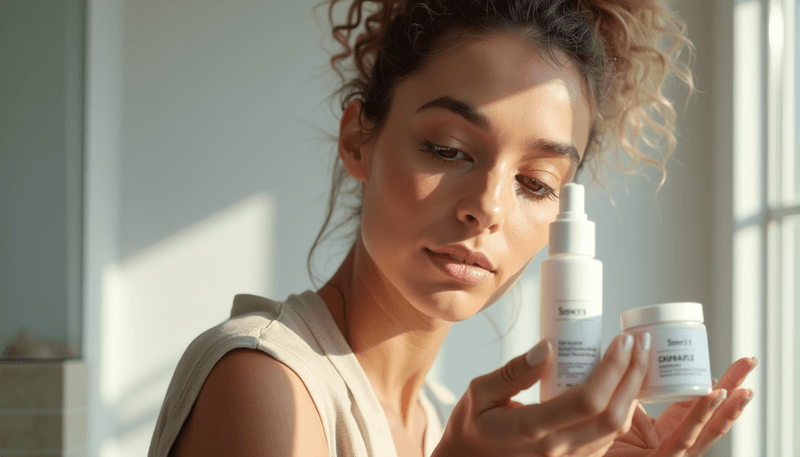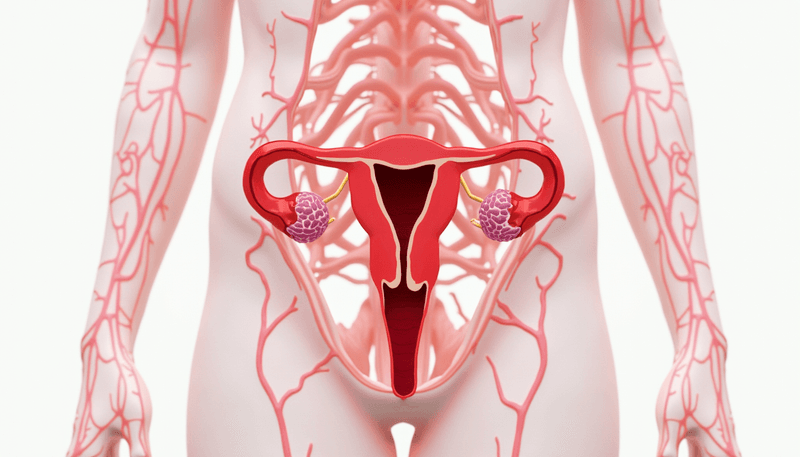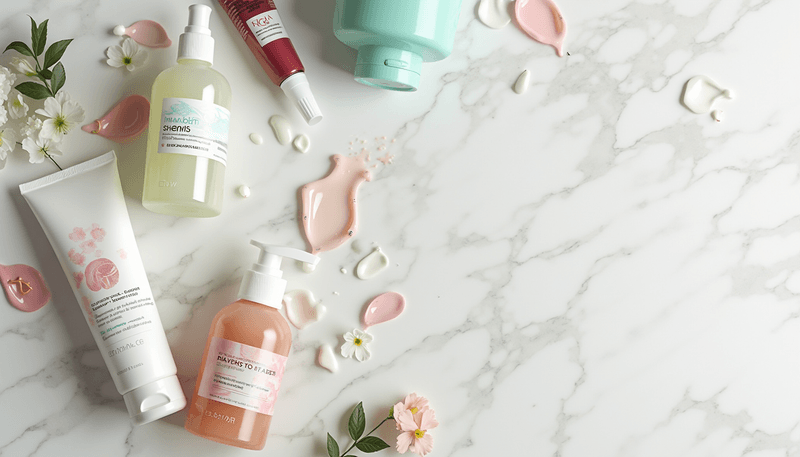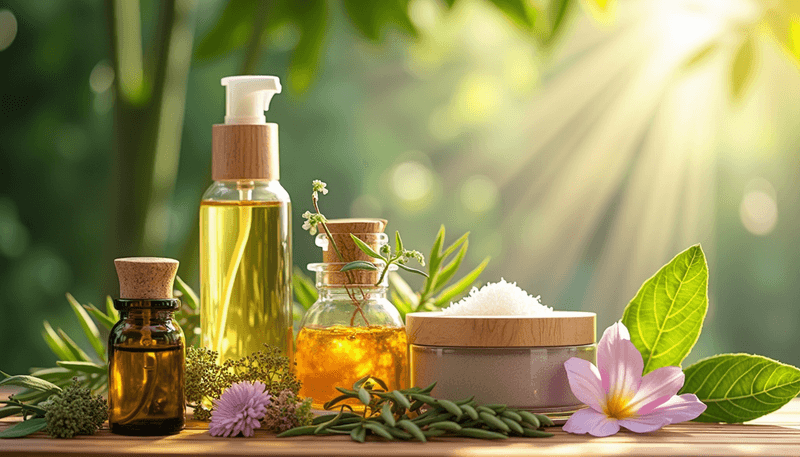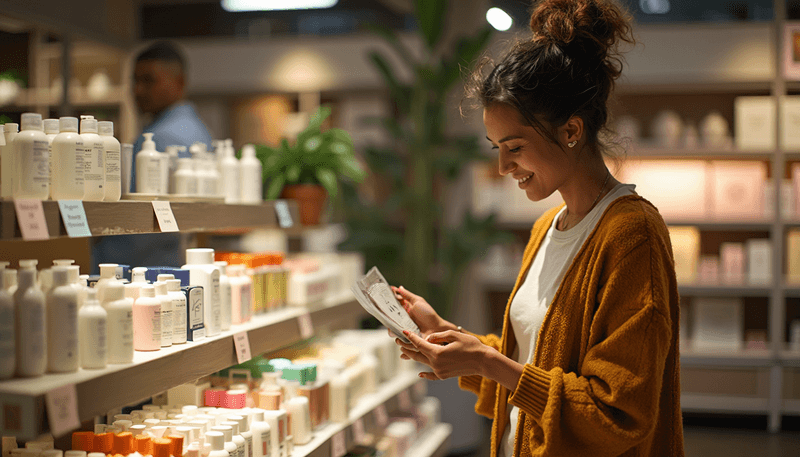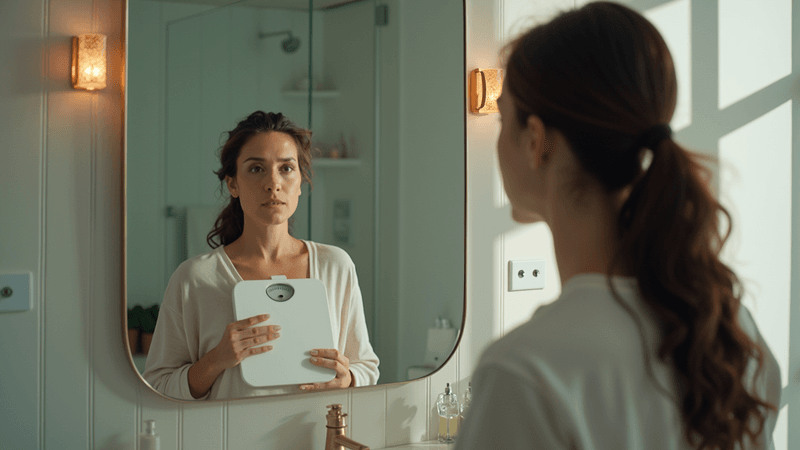Parabens May Speed Up Menopause
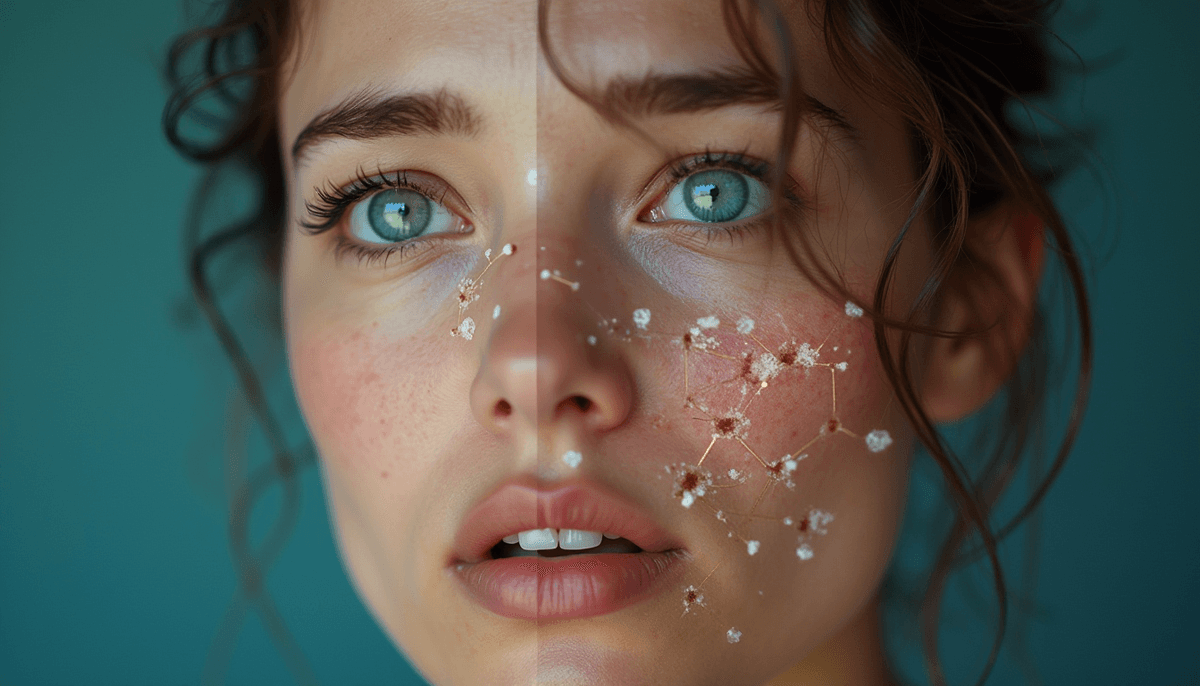
Have you ever flipped over your favorite moisturizer and noticed ingredients ending in "-paraben"? While these preservatives keep our beauty products fresh, new research suggests they might be doing more than just preventing bacterial growth. A groundbreaking study from Southeast University reveals concerning links between common preservatives and the timing of menopause, prompting us to take a closer look at what we're putting on our skin.
The Hidden Impact of Everyday Products
As someone who's battled with PCOS and endometriosis, I've learned to be vigilant about what goes into and onto my body. This research particularly caught my attention because it analyzed data from over 2,600 women in the National Health and Nutrition Examination Survey. The findings? Women with higher levels of certain parabens, particularly ethyl paraben (EP), showed a 28% higher chance of entering menopause earlier than those with lower levels.
"Think of parabens as tiny keys that can accidentally unlock doors in your endocrine system that are meant to stay closed until the right time."
Understanding Paraben Exposure in Daily Life
The study identified four main types of parabens that we regularly encounter:
- Butyl paraben (BP)
- Ethyl paraben (EP)
- Methyl paraben (MP)
- Propyl paraben (PP)
These preservatives are found in:
- Cosmetics and skincare products
- Hair care items
- Food preservatives
- Pharmaceuticals
What makes this concerning? Unlike occasional exposure to environmental toxins, parabens in personal care products contact our skin daily, potentially leading to significant accumulation over time.
Practical Steps for Reducing Paraben Exposure
Based on the research findings, here are actionable steps to minimize paraben exposure:
-
Read Labels Mindfully
- Look for "paraben-free" certifications
- Check ingredient lists for words ending in "-paraben"
- Don't be fooled by "natural" claims without verification
-
Choose Alternative Products
- Use products with natural preservatives like:
- Grapefruit seed extract
- Vitamin E
- Rosemary extract
- Consider shorter shelf-life products that require fewer preservatives
- Use products with natural preservatives like:
-
Make Simple Swaps
- Replace commercial moisturizers with pure oils like jojoba or argan
- Use mineral-based sunscreens instead of chemical ones
- Choose fragrance-free products (fragrances often contain hidden parabens)
Question to consider: What three personal care products do you use most frequently? Have you checked their ingredients for parabens?
The Science Behind the Timing
The research revealed something fascinating - women who didn't use oral contraceptives showed even stronger connections between paraben exposure and early menopause. This suggests that hormonal balance plays a crucial role in how these chemicals affect our bodies.
When I explained this to my twin daughters, I used a simple analogy: Think of your endocrine system as an orchestra. Each hormone is a musician playing its part at exactly the right time. Parabens are like random sounds that can throw off the conductor's timing, making some musicians play their parts too early.
Key findings worth noting:
- Women with higher EP levels showed a 26-28% increased risk of earlier menopause
- The effect was strongest in women who:
- Didn't smoke
- Didn't drink regularly
- Weren't using oral contraceptives
Creating a Paraben-Conscious Lifestyle
As a health writer and someone who's navigated hormonal health challenges, I've learned that small changes can make a big difference. Here's my practical approach to reducing paraben exposure while staying realistic:
-
Start with High-Impact Items
- Focus first on products that stay on your skin (moisturizers, serums)
- Then address wash-off products (shampoos, body wash)
- Finally, look at occasional-use items
-
Make Gradual Switches
- Replace items as they run out to avoid waste
- Keep a running list of preferred alternatives
- Share findings with friends and family
-
Stay Informed but Balanced
- Follow reputable sources for ingredient research
- Don't panic about occasional exposure
- Focus on progress, not perfection
"Small, consistent changes in our daily choices can have powerful effects on our long-term health."
The journey to reducing chemical exposure doesn't have to be overwhelming. Start with one product switch this week. Which one will you choose?
Your future self will thank you for the mindful choices you make today. Take a moment to check your bathroom cabinet - what one product could you swap for a paraben-free alternative this week?

Olivia Rose Chen-Martinez
Olivia Rose Chen-Martinez is a seasoned health and wellness writer with a focus on women’s health issues, including PCOS, perimenopause, and holistic wellness. With a background in Journalism and Public Health from UC Berkeley, Olivia draws on over 15 years of writing experience to deliver empathetic, research-backed insights. Her work blends personal anecdotes and actionable advice, resonating with readers seeking accessible and trustworthy information. Based in Austin, Texas, Olivia is also a certified yoga instructor and a dedicated advocate for balanced, integrative approaches to women’s health.
